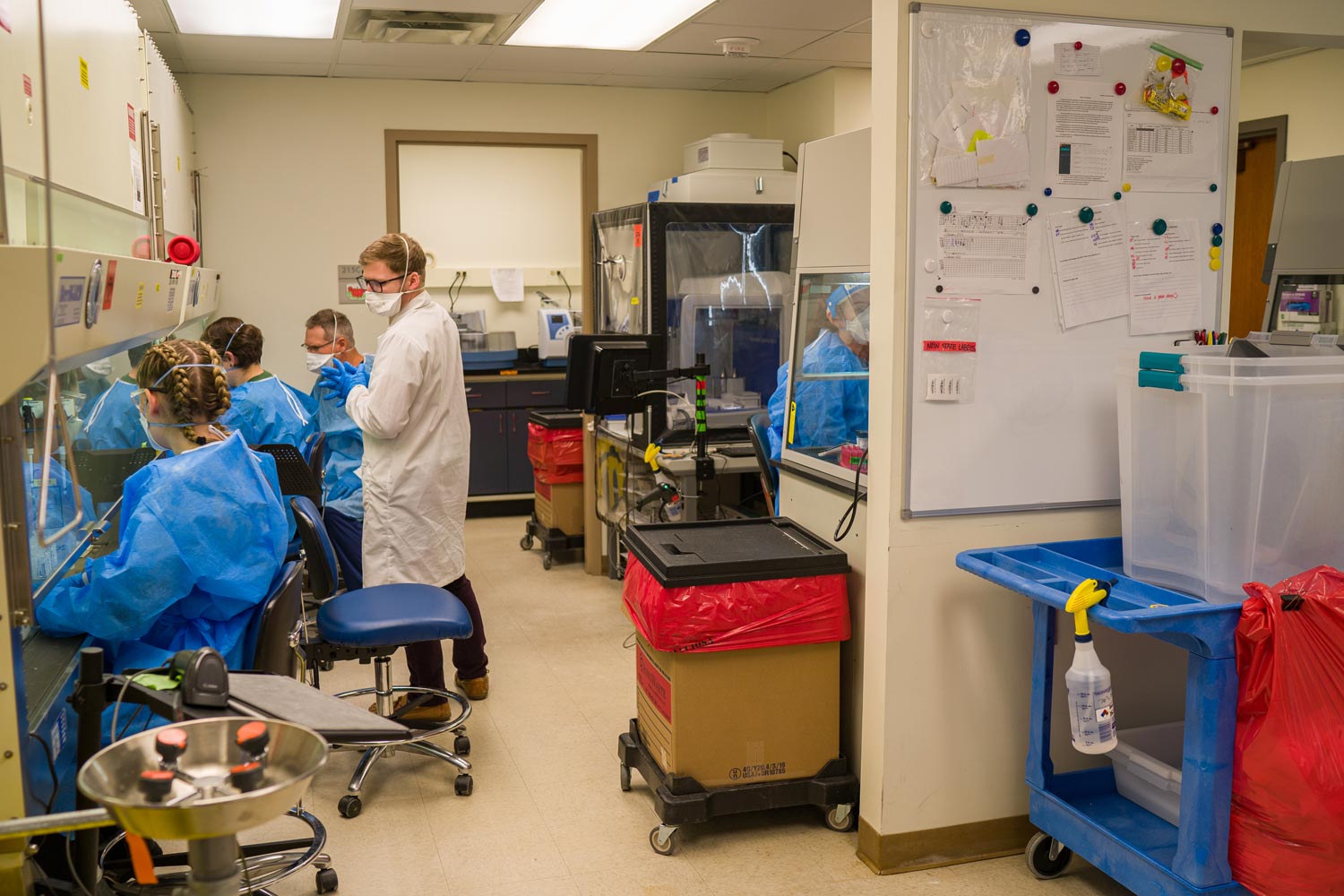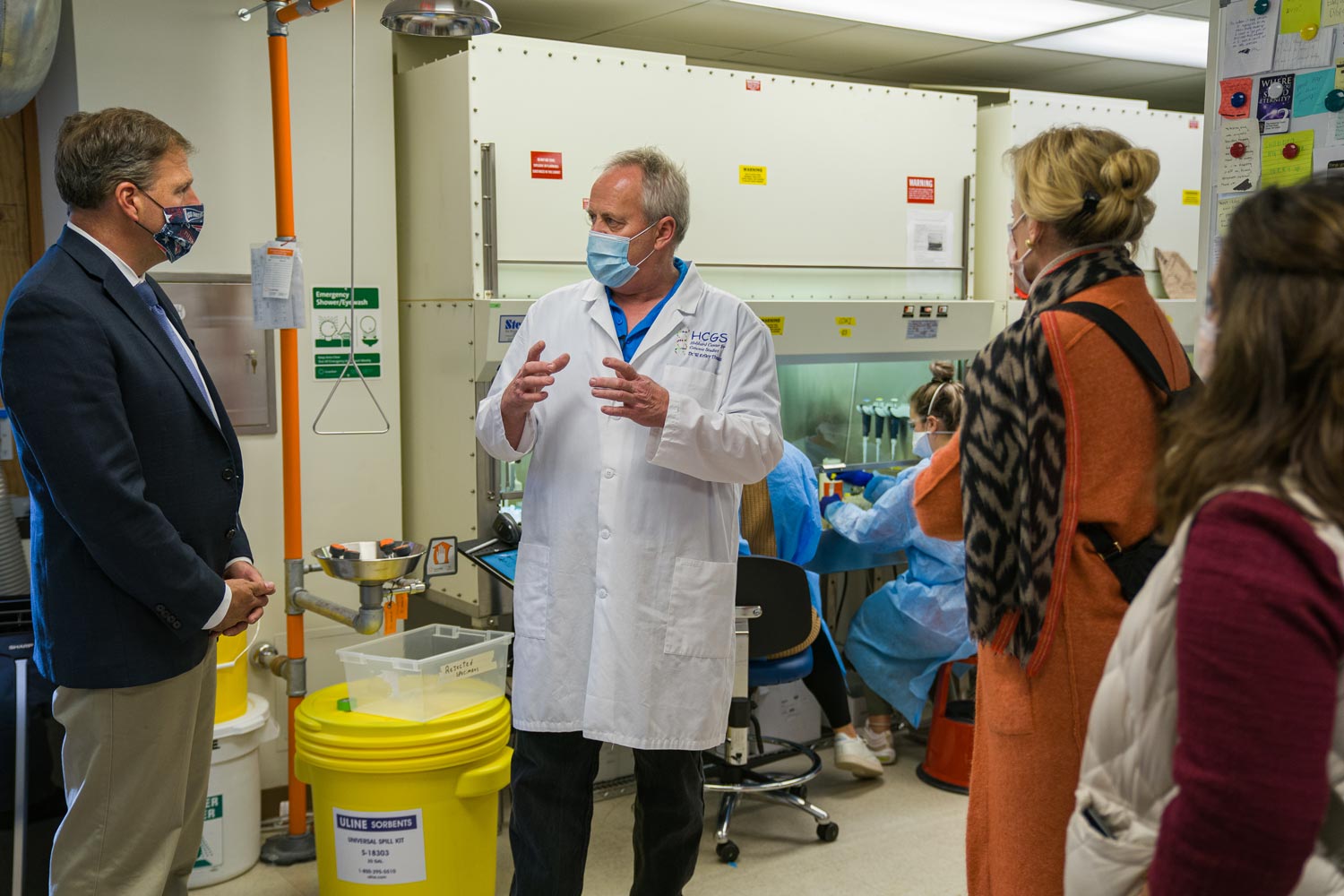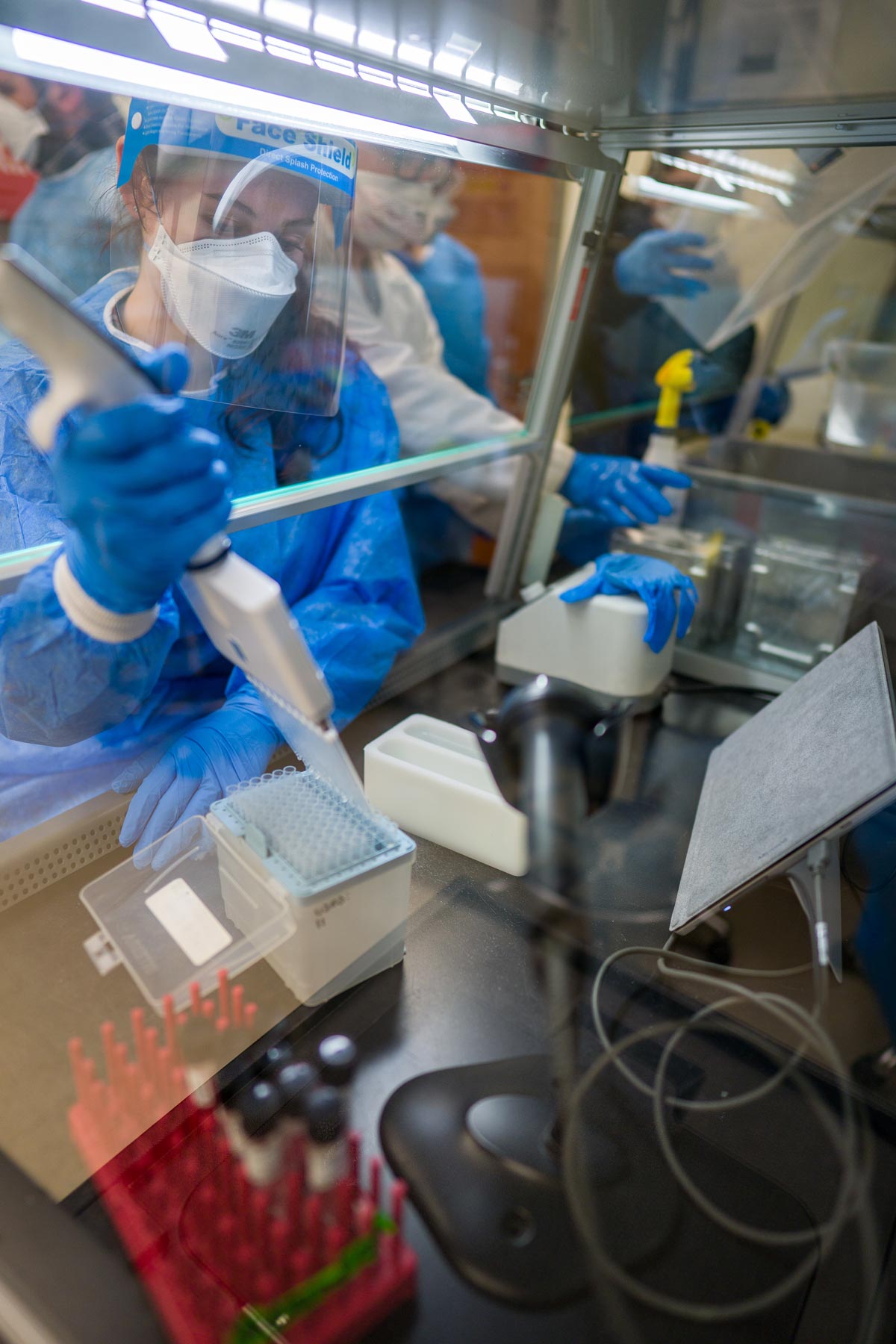Test for Success
The lab tapped the expertise of several UNH faculty researchers, among them Rick Cote, director of the Center for Integrated Biomedical and Bioengineering Research, and Kelley Thomas, director of the Hubbard Center for Genome Studies. Both are professors of molecular, cellular and biomedical sciences; Thomas serves as the lab’s scientific director. More than 20 medical technologists and lab assistants, including students, work at the lab in two shifts, six days per week.
At Thomas’s and Cote’s advice, UNH set up its lab to process real-time reverse transcription polymerase chain reaction, or RT-PCR, tests, which Thomas calls “the gold standard for COVID-19 testing:” sensitive, speedy and remarkably accurate.
“The world-class testing system that Kelley designed and implemented has a ridiculously low false positive rate, as low as zero false positives out of the hundreds of thousands of samples analyzed,” Cote says.
UNH’s testing innovations span the entire cycle, from nose to lab to results. Students, faculty and staff test themselves using a self-swabbing kit created by UNH. After swabbing their nostrils, students deposit their test kits into drop boxes across campus; they’re collected every two hours for processing that generally takes less than a day. Computational scientist Anthony Westbrook of UNH’s Research Computing Center created the software that scans each test’s barcode and tracks it through the entire process.

“It’s very exciting to be able to offer testing capacity to those who need it around the state,” McCord says.
Word of UNH’s testing innovation has spread, bringing high-profile visitors and attention to the lab. Dr. Deborah Birx, former U.S. coronavirus response coordinator ambassador, toured the lab in October with Gov. Chris Sununu, as did U.S. Sen. Jeanne Shaheen and U.S. Rep. Chris Pappas; U.S. Sen. Maggie Hassan took a virtual tour. More than 170 people attended a virtual panel on university COVID testing, hosted by UNHInnovation and moderated by New York Times Coronavirus Schools Briefing newsletter writer Amelia Nierenberg; in addition to UNH, panelists from Georgia Tech, the University of Illinois and Purdue University presented their campus plans to address COVID-19.


Bringing its testing operations in-house — many other universities testing regularly contract with outside laboratories — was as audacious as it was successful. Without a medical or veterinary school, “we actually did not have a reason to think that we should be able to do this,” says Marc Sedam, UNH vice provost for innovation and new ventures and a leader in operationalizing the lab. “Except we’re in New Hampshire and we just do stuff because we know that it needs to be done.”
McCord notes that UNH’s position as the state’s public research university and its R1 Carnegie Classification positioned the lab for success. “It is because of investments that have been made in our research infrastructure that we were able to stand up this laboratory in such a short time,” she says. “It’s incredibly gratifying to know we’re making an impact, not just for the university itself but for the citizens of New Hampshire.”